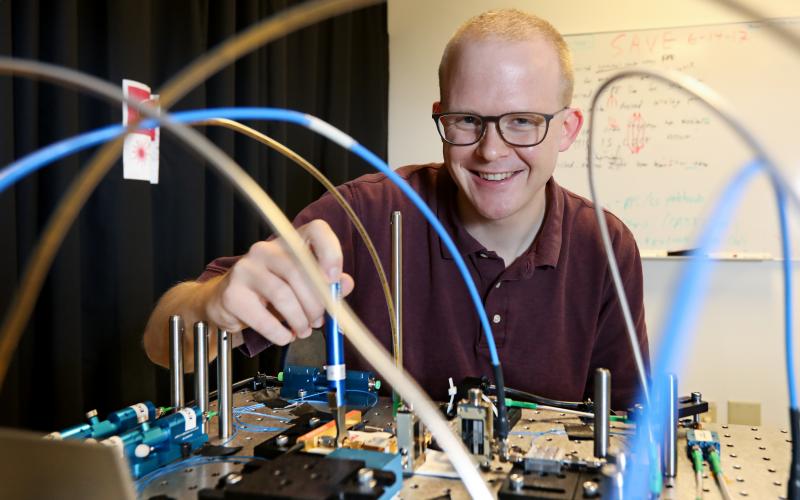
Fast data transmissions could be delivered in homes and offices through light-emitting diodes (LED) bulbs, complementing existing communication technologies and networks.
The future’s new internet technologies are being rapidly refined by academics and LED-based communication links are expected to be extensively used in numerous emerging services and scenarios, including Light-fidelity (Li-Fi), underwater communications, moderate- to high-speed photonic interconnects and various ‘Internet of Things’ (IoT) devices.
A new study led by the University of Surrey and University of Cambridge has investigated how to release high-speed photonic sources using metal-halide perovskites...
Read More








Recent Comments